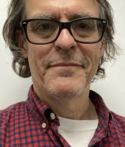While ideas are considered important phenomena across a range of disciplines, from philosophy and art to science and design, and figure prominently, albeit often implicitly, in data, theories, and methods, ideas are rarely objects of research themselves. In this symposium, we will put ideas front and center as the object of study. In particular, we are interested in exploring what we might call the everyday life of ideas, as they emerge and evolve, thrive or fade away, and the practices and infrastructures that shape them. We aim to share and discuss methodologies, frameworks, and perspectives on studying the genesis, evolution, dissemination, and impact of ideas in practice. We welcome contributions from a multitude of disciplines including, but not limited to design, philosophy, psychology, political science, linguistics, anthropology, science and technology studies (STS), cognitive science, communication studies, and education research.
Dr Jennifer (Jen) Clarke, Associate Professor at Gray’s School of Art, RGU, Scotland, is an anthropologist, artist, and multi- and inter-disciplinary researcher and curator. Her research, teaching, and artworks combine and explore the borders of contemporary art and anthropology, working in and leading highly collaborative projects. Her research takes a feminist perspective to address urgent social and ecological issues, primarily working in the UK and Japan, where she has worked on and off since 2003; she recently held a Visiting Professorial Research Fellowship at the University of Tohoku. Clarke’s background and training is in the arts, anthropology, and artistic research: with an MA in the arts from University of Glasgow, an MA in Visual Anthropology from Goldsmiths College, University of London, an MRes. And PhD in Social Anthropology from University of Aberdeen, and an Advanced Masters in Artistic Research from Sint Lucas School of the Arts, Antwerp. She has been the Chair of the Board of Directors for the Scottish Sculpture Workshop since 2018, and was co-Chair of ANTART, EASA’s ‘Anthropology and the Arts’ Network, 2020-22.

Professor Frederic Vallee-Tourangeau is an experimental psychologist, working primarily on problem solving from a distributed cognition perspective. He runs the Systemic Cognition Lab at Kingston University, UK.
We hereby invite contributions to the international research symposium "Studying Ideas in Practice." For this two-day event, we bring together researchers from diverse fields to collectively explore and discuss the multidimensionality of ideas from different empirical, methodological, and theoretical perspectives.
*** We welcome contributions on topics including, but not limited to ***
*** Submission Guidelines ***
We operate with a two-stage submission process: Prospective participants must first submit a brief outline of their proposed contribution and then, pending review and acceptance, a full contribution.
The brief outline (30 June) must include the title, abstract (max. 150 words), key themes and a description of the relevance to the symposium theme.
Possible types of contribution include but are not limited to case studies, data analyses, follow-up studies, methodological contributions, theoretical positionings and reflections, and works in progress.
The full contribution (1st October) must be a maximum of 2000 words (excluding references).
Submissions will be evaluated by the organising committee, and selected contributions will be considered for publication in a journal special issue.
Symposium fee TBD.
*** Symposium Benefits and Outcomes ***
Accepted contributions will be presented and discussed during the symposium. We will work with a range of formats to foster interdisciplinary dialogue and networking opportunities. Selected contributions may be considered for publication in a special issue of [discuss and find a proper journal].
23-24th October 2024
The symposium is in-person and requires the submission of a contribution paper. Remote participation or presentation is not possible.
Brief outlines must be submitted by June 30.
Notification of acceptance by July 31.
Full contributions must be submitted by October 1.